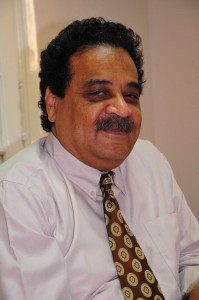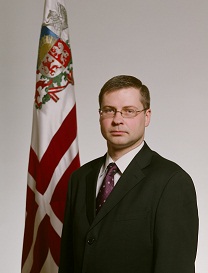
There are many questions concerning running for presidency and whether it is possible to do such a thing without political backing or support. For instance, can a real campaign be created and run without political support? The same question applies concerning running the country. These questions stem from some statements made by supporters of Field Marshal Al-Sisi as well as the supporters of Hamdeen Sabahy. These statements are concerned with denying that the candidates belong to any parties or political movements.
Meanwhile, in the United States, when Obama or Bush ran for presidency, they ran through their respective political parties to guarantee votes. In any democratic country, usually the presidential candidate belongs to a certain political party. That is to guarantee the majority of votes, since belonging to a party strengthens the candidate’s chances because it gives the candidate identity, history and the political practices of the party. Lastly, it means that the candidate has political comrades and supporters spread around the country and they are the ones who will fight for the success of the candidate.
Now, let’s review the political history of some previous presidents. Who knew Mohamed Morsi before he ran for presidency? I knew some people in the political scene, especially those with no known experience who used to mock Morsi because no one knew him. Meanwhile, only a small group of political experts — myself included — knew that there was a high possibility that Morsi would win the elections. This was not because of his personal achievements or popularity, but rather because he belongs to the Muslim Brotherhood, which had a great reach within society at the time.
The political party is the one that promotes the candidate and hence, the history of the party becomes the candidate’s own history.
Supporters of Al-Sisi say that he is the people’s candidate or the stability candidate. I believe that the situation calls for more than just loosely-based statements that lack substance. For instance, which group of people is supporting him? For sure, the Brotherhood will not support him and most of the youth are in favour of Hamdeen Sabahy. Therefore, isn’t it better to concede that no candidate can garner everyone’s votes?
Al-Sisi has to create specific political speech and programme to highlight which group of people he is targeting, who he is representing and which people he considers adversaries.
As for stability, Al-Sisi needs to determine what kind of stability he means. Mubarak always spoke of stability. Will Al-Sisi follow in Mubarak’s footsteps, providing people with stability based on oppression which could rupture in any moment? Or will he promise a different kind based on facing extreme thought and terrorism in a democratic setting which will allow all political groups to take part in the process and enliven the ideas of forgiveness, nationalism and human rights instead of oppression?
The decision should be made based on the vision of the candidate which cannot be created with loosely-based statements and slogans. Until now, both Hamdeen and Al-Sisi have failed to provide the public with clear visions concerning their presidential campaigns.
Hamdeen is trying to put himself forward as the revolutionary candidate who will face the Brotherhood and former regime. Some believe that this kind of political speech is a bit more defined than Al-Sisi’s. The political background of the candidate is also important and Hamdeen has a publically known one. Yet, he hasn’t decided which party he belongs to and he also uses unclear statements concerning the “power of the revolution”, even though we all know that in both the 25 January and 30 June revolutions, the revolutionary alliance was greatly varied and contained more than one political group. Therefore, talking about the power of the revolution does not translate to anything concrete and it simply means that Hamdeen does not belong to any known political group.
In the previous elections, Hamdeen did not announce that he was the candidate of Al-Karama Party, which he founded. He also did not announce that he was the Nasserist candidate, but that he was the revolution’s candidate. The campaign ended up as part of the popular movement. At the time, it was not a party yet, so it included many people across different political parties. It was said that it was Hamdeen’s new party. If that was correct, then Hamdeen should have run for presidency as the popular party’s candidate, but that did not happen.
However, Hamdeen has a known political history while Al-Sisi doesn’t. Therefore, Al-Sisi needs to define his vision and accomplishments to the voting public even more than Hamdeen. I do not know why supporters of Al-Sisi believe that anyone demanding a campaign and vision out of the candidate is against him. These supporters need to differentiate between facts and perspectives because a historical background provides information, while statements provide perspectives or points of view. Information can either lead to the granting or withholding of votes.
Some try to pass Al-Sisi’s military history as enough information and that Egypt needs a strong man from the military institution, etc. This is fair enough; at least they provide a counter-argument for my statement instead of attacking it.




